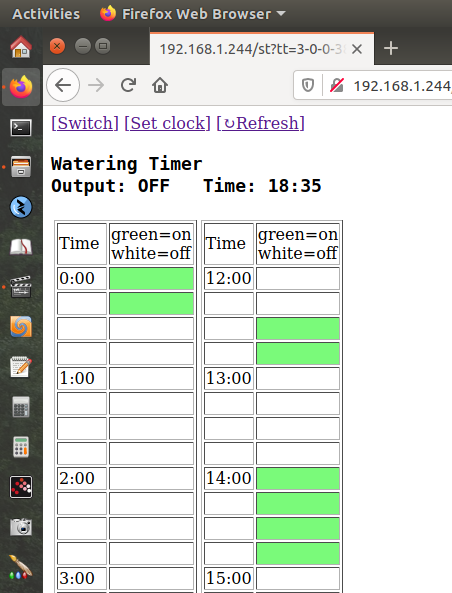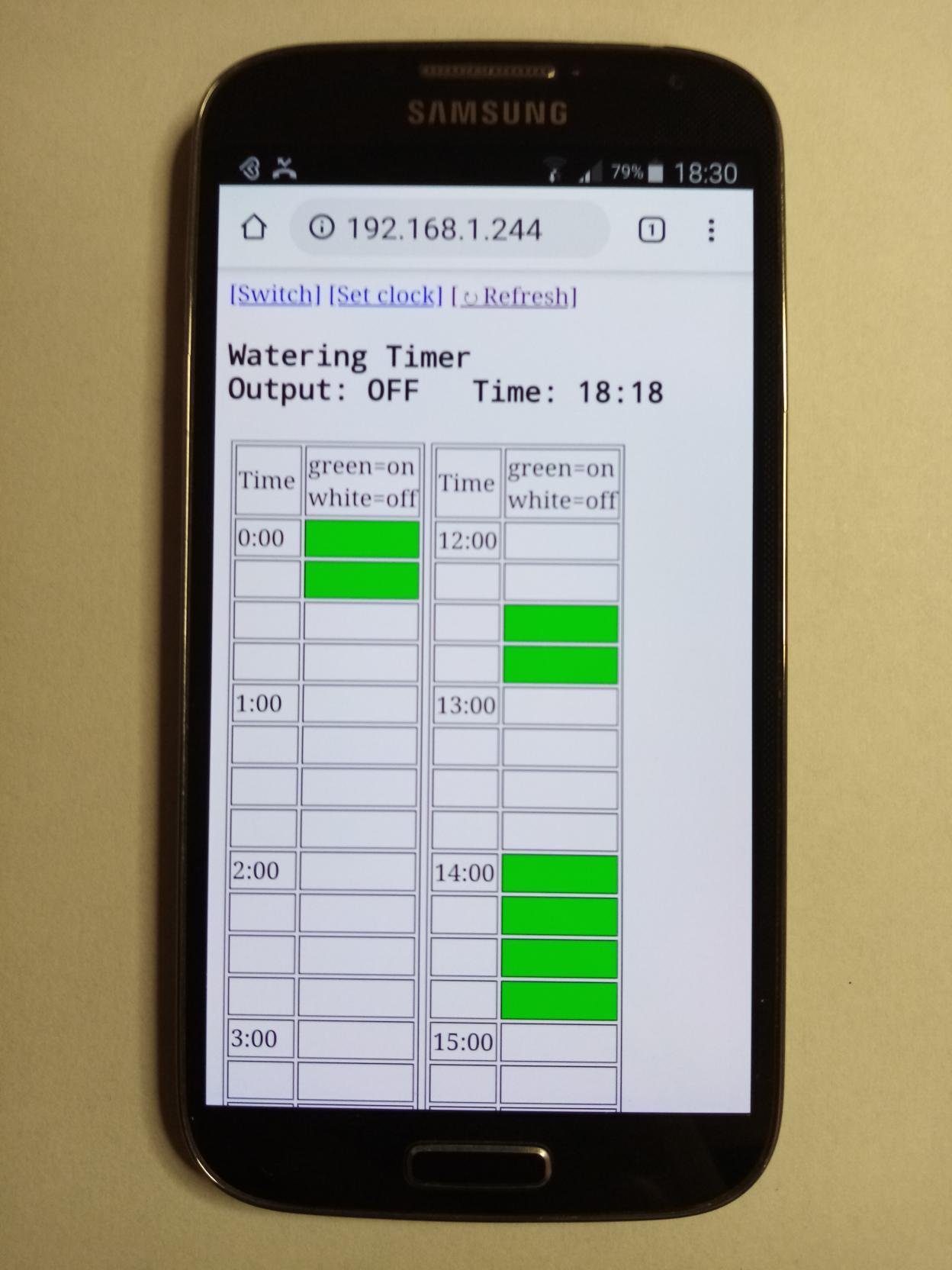A remote timer, equipped with a scheduling Web interface, controls a "DigitalOut".
Dependencies: Timezone NTPClient
WebTimer
The WebTimer is an Mbed device enabling to remotely control a DigitalOut. It has a "calendar-like" user interface to edit the schedule - a table you can click on (or tap on a touch-screen device).
The program was ported to Mbed from the Tuxgraphics site. Thank you Guido for sharing!
- When starting, it will print it's IP address over the USB serial link to the terminal screen. However, you can set a different static IP address if you modify the code in the
main.cpp. - To connect to the WebTimer, type the IP address into the web browser edit box and hit
ENTER. - When a cell is green then the timer keeps it's output
ONduring that period of time. If a cell is not green it means the output isOFF.
- To select or deselect multiple cells you can click (keep down the button) and move the mouse over more cells.
- The smallest time interval on this 24h timer is 15minutes.
- To save the changes type in the password and hit
ENTERor click on theSavebutton. - The default password is "secret". But you can change it by editing the source code in
main.cpp.
 |  |
Diff: websrv_help_functions.h
- Revision:
- 0:f78e57015038
--- /dev/null Thu Jan 01 00:00:00 1970 +0000
+++ b/websrv_help_functions.h Wed Nov 11 16:56:02 2020 +0000
@@ -0,0 +1,46 @@
+/*********************************************
+ * vim:sw=8:ts=8:si:et
+ * To use the above modeline in vim you must have "set modeline" in your .vimrc
+ * Author: Guido Socher
+ * Copyright: LGPL V2
+ * See http://www.gnu.org/licenses/old-licenses/lgpl-2.0.html
+ *
+ * Some common utilities needed for IP and web applications.
+ * The defines below are controlled via ip_config.h. By choosing
+ * the right defines for your application in ip_config.h you can
+ * significantly reduce the size of the resulting code.
+ *********************************************/
+//@{
+#ifndef WEBSRV_HELP_FUNCTIONS_H
+#define WEBSRV_HELP_FUNCTIONS_H
+//#include "ip_config.h"
+#include "stdint.h"
+
+#define FROMDECODE_websrv_help
+#define URLENCODE_websrv_help
+
+#ifdef __cplusplus
+extern "C" {
+#endif
+
+#ifdef FROMDECODE_websrv_help
+// These functions are documented in websrv_help_functions.c.
+// find_key_val searches for key=value pairs in urls, returns 1 if the key was found (may be empty string) and returns 0 if the key was not found:
+extern uint8_t find_key_val(char *str,char *strbuf, uint8_t maxlen,char *key);
+
+extern void urldecode(char *urlbuf); // decode a url string e.g "hello%20joe" or "hello+joe" becomes "hello joe"
+#endif
+#ifdef URLENCODE_websrv_help
+extern void urlencode(const char *str,char *urlbuf); // result goes into urlbuf. There must be enough space in urlbuf. In the worst case that would be 3 times the length of str.
+#endif
+// parse a string that is an IP address and extract the IP to bytestr
+extern uint8_t parse_ip(uint8_t *ip_byte_str,const char *str);
+extern void mk_net_str(char *resultstr,uint8_t *ip_byte_str,uint8_t len,char separator,uint8_t base);
+
+#ifdef __cplusplus
+}
+#endif
+
+#endif /* WEBSRV_HELP_FUNCTIONS_H */
+//@}
+